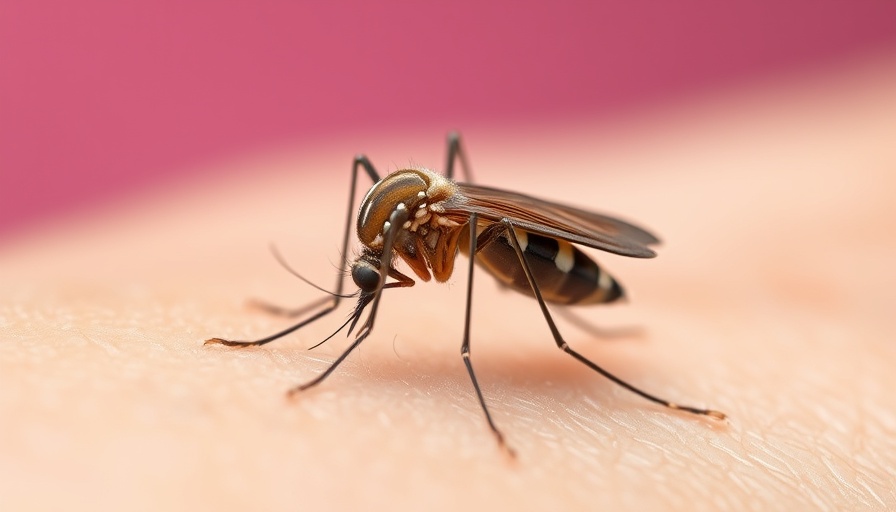
Understanding Mosquito-Borne Illnesses
As summer draws near, the Georgia Department of Public Health (DPH) has issued vital information regarding the prevention of mosquito-borne illnesses. With rising temperatures, the risk of these illnesses, such as West Nile virus and Eastern Equine Encephalitis (EEE), poses a significant concern for public health professionals. Understanding how these diseases spread can help mitigate their impact on our communities.
Proactive Steps for Protection
The DPH emphasizes several proactive measures that can be taken to reduce the chance of mosquito bites and breeding areas. One of the first lines of defense is the application of insect repellent containing active ingredients like DEET or oil of lemon eucalyptus when planning outdoor activities. This practice should not be relegated to the hot months of July and August but should commence during the late spring when mosquitoes begin to emerge.
Additionally, appropriate clothing is significant during peak mosquito activity times, notably at dawn and dusk. Wearing long sleeves and pants can significantly lower the risk of bites.
Tips to Reduce Breeding Grounds
One crucial tip shared by the DPH is the "tip and toss" approach to managing standing water around one's property. Mosquitoes require stagnant water to breed, so regularly emptying containers that hold water, such as flowerpots and buckets, can deter these insects from multiplying. This maintenance can extend to ensuring proper drainage in children's toys like tire swings.
Vaccination for Livestock
While no human vaccines currently exist for some mosquito-borne illnesses, veterinary vaccinations for horses can safeguard this substantial segment of the livestock community. Owners are encouraged to consult their veterinarians about vaccinations for EEE and West Nile Virus, emphasizing that protection extends beyond humans to the animals that share our environments.
The Importance of Community Awareness
Chris Calhoun, Environmental Health Director, reminds us that community-wide efforts are vital in preventing outbreaks of mosquito-borne diseases. "Awareness and proactive actions can make a significant difference," Calhoun stated. By combining personal actions with community involvement, we can create a safer environment for all.
Conclusion and Call to Action
As temperatures climb and opportunities for outdoor activities increase, everyone must remain vigilant about mosquito-borne illnesses. The DPH's recommendations stress the importance of individual actions compounded by community strategies. It is crucial for individuals to educate themselves, family, and friends about these preventative measures. For further details on mosquito-borne illness prevention, please visit the Centers for Disease Control and Prevention website and ensure you stay informed and protected this summer.
 Add Row
Add Row  Add
Add 




 Add Row
Add Row  Add
Add 

Write A Comment